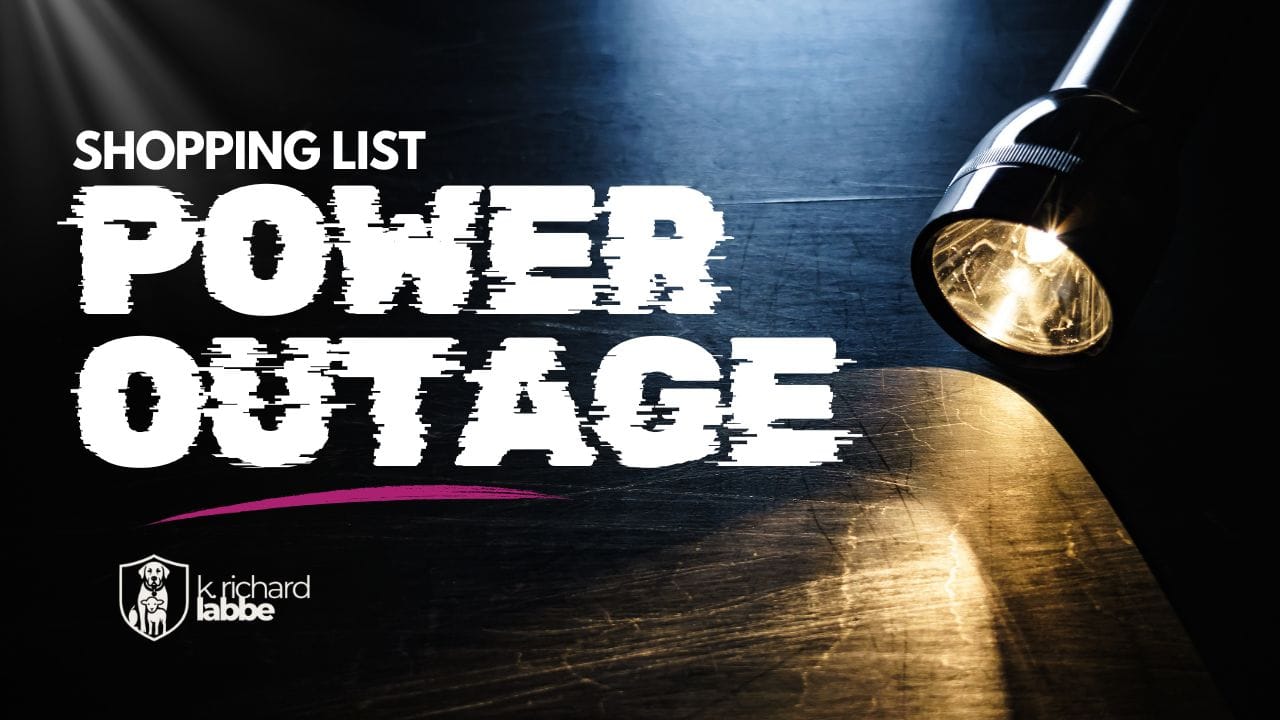Your Power’s Out—Now What? A Simple Shopping List to Be Ready Next Time
You don’t need to be a prepper to be prepared. With a few items—gathered gradually—you can face the next outage with calm, not chaos. Let’s make your home outage-ready, one shelf at a time.

Why This List Exists
After a 36-hour power outage during a recent summer storm, I realized something: we were mostly fine. But we could’ve been much more comfortable with just a little foresight.
We weren’t in a crisis zone. We didn’t need FEMA trucks or Red Cross tents. We just needed some batteries, a way to charge our phones, and food that didn’t require the microwave.
That’s why I made this list—for real people in real homes who want to be ready for the next short-term outage, without fear or overkill.
What This List Isn’t
It’s not about surviving a hurricane, building a bunker, or preparing for societal collapse.
This is for everyday folks facing the most common type of emergency:
A short-term power outage that leaves you temporarily in the dark—and on your own.
What to Get: The Basic Power Outage Preparedness List
You don’t need to buy it all at once. Add one or two items a week. Most of it you probably already have—somewhere.
Light & Power
Start with the basics:
- LED flashlights (one per room or floor)
- Fresh batteries (check your devices)
- A couple of portable power banks for your phone
- A car charger
- Optional: a small generator and outdoor-rated extension cord (if medically necessary or for added peace of mind)
Food & Water
Think “no stove, no fridge” for a few days:
- Bottled water (1 gallon per person per day, for 3 days)
- Shelf-stable snacks: granola bars, crackers, peanut butter
- Canned food: soups, beans, tuna, fruit
- Manual can opener
- Cooler and a few ice packs (if you need to store meds or keep things cold)
Health & Comfort
A few creature comforts go a long way:
- Basic first aid kit
- Wipes for quick cleaning
- Toilet paper, hand sanitizer
- Paper plates and utensils (no dishes, no problem)
- A stash of personal medications (at least 3 days’ worth)
Communication & Safety
Stay connected and in control:
- A battery-powered or hand-crank NOAA weather radio
- Printed emergency contacts (don’t rely on your phone)
- Local map (paper version)
- A small stash of cash in small bills
- Duct tape, glow sticks, and a pen/notepad (yes, really)
Tailor It to Your Region
Where you live matters. Here are a few smart regional add-ons:
- Northern areas: Thermal blankets, firewood, safe indoor heating
- Southern states: Battery fan, extra water, electrolyte packets
- Fire-prone zones: N95 masks, plastic sheeting, backup air filtration
- Flood-prone areas: Waterproof bag for documents, boots, manual water pump
Do This Today
This isn’t about urgency—it’s about wisdom.
- Find one working flashlight and put it where you’d reach for it in the dark.
- Buy one power bank or weather radio this week.
- Set aside one day’s worth of no-cook food.
- Print a copy of your emergency contacts—and put it in your wallet.
Small steps. Steady peace.
A Word on Stewardship
Preparedness isn’t fear—it’s faithfulness. When you take care of your home and the people in it, you’re living out the quiet kind of wisdom that makes a real difference in uncertain moments.
You’re not just protecting your stuff—you’re building peace, readiness, and trust.
Final Word: Prepared, Not Paranoid
Power outages don’t need to derail your household or your heart. A calm plan and a few basics go a long way.
Let’s get ahead of the next outage—one flashlight, one can opener, one power bank at a time.
Prepared, not paranoid. That’s how we face the storm.
Stay safe. Be ready. Online and off.
Every effort has been made to ensure the accuracy and reliability of the information presented here. While Labbe Media, LLC strives to offer clear, well-researched guidance, this content is intended for educational purposes only and isn’t a substitute for professional advice tailored to your situation. We encourage you to use this material as a starting point—and to double-check details and consult trusted professionals when making important decisions.
